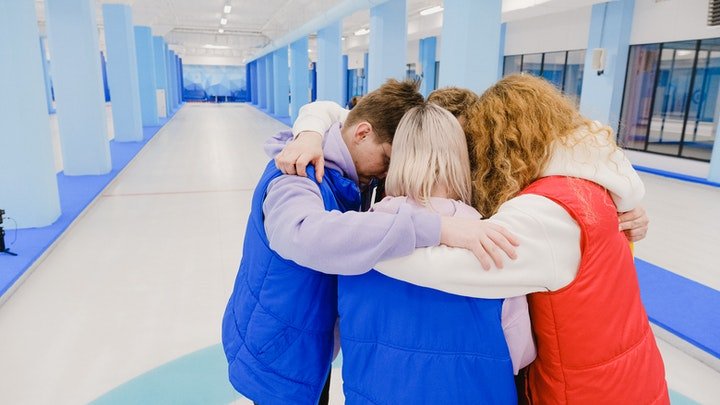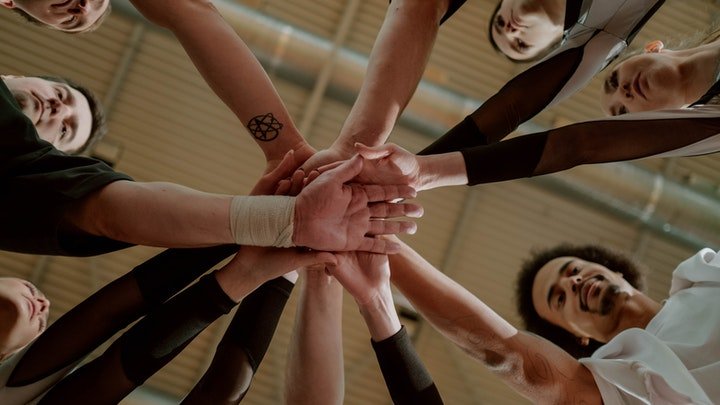When faced with the challenge of quitting an addictive substance, there are many aspects of a person’s life that need to be considered.
Addiction affects a person’s physical and mental health, often their finances, housing, and career. Addiction is also highly damaging to a person’s relationships. Along with this, there are usually many unhealthy relationships and attachments formed through the life of addiction.
By nature, humans are social creatures who need connection. True recovery includes having to make changes to social connections. This can be very challenging.
Peer support is an incredibly important aspect of recovery for people choosing an abstinent lifestyle.
Where do you find peer supporters?

Peer supporters tend to exist within peer groups in relation to the recovery setting. This is often gained in 12 Step groups such as Alcoholics Anonymous and Narcotics Anonymous. It’s important at this point to stress that although many view 12 Step groups as religious, many aren’t at all.
Within the outlined 12 Steps, there are references to “God” and a “higher power”. This is where the idea that the group is religious came from. Truth is, these references were constructed by the founders of AA to be interpreted by the individual.
Whatever each person chooses as their higher power (whether nature, God, the universe etc) is their choice. Ultimately, it’s a way of developing faith in whatever the person chooses to draw strength from.
The importance of peer support in recovery

Participation in peer support groups makes a huge difference to the long-term outcomes of people staying sober.
This aspect of the healing journey provides a space for support around addiction and abstinence which isn’t clinical. It’s not led by professionals. This, for many, feels much more comfortable. It’s an environment where people find others who understand them completely.
Professional treatment is essential, particularly in the first year of recovery. Peer support is crucial for the long-term.
These groups are where people meet others on the same wavelength. It can be incredibly difficult to ask professionals certain questions or to talk about specific things to start with, having peer support offers an excellent place to share more comfortably. Peer supporters can advise and give you ideas on how to make your life sustainably sober.
During recovery, peer connections provide an area of trust and support. In 12 Step groups, the sponsor relationship provides a highly beneficial addition to a person in the early stages of quitting a substance. This is why it’s really useful to have a peer supporter who you can build a genuine relationship with, where there is respect.
Peer support groups are also great at supporting people around mental health issues. Due to the high correlation between addiction and mental health problems, this is vital.
Another critical aspect of peer support is that it’s a supported space that provides consistency while all other areas of a person’s treatment might evolve as their needs change.
The experience of a peer supporter

Often, within the peer set, you will be linked to someone specifically, usually a sponsor.
In order to become a sponsor, there are usually a few eligibility requirements including:
- The completion of a 28-day rehabilitation programme.
- At least a year of abstinence.
- Living a healthy recovery.
Peer supporters have personal experience of addiction, this brings with it a wealth of knowledge and first-person understanding.
The peer relationship means you get access to their resources and you’ll also often be able to learn about addiction in the sense of its causes, triggers, and how to create a lifestyle that is conducive to positive change.
The role of a peer supporter

The role of a peer supporter has many aspects that really support a person towards a healthy life of healing.
To start with, a peer supporter endeavours to make a person feel relaxed. This is essential. Leaving a life of drugs and alcohol can feel incredibly uncomfortable, overwhelming, and impossible. With all these feelings, it’s important that people have spaces where they are comfortable, relaxed and positive.
Guidance is provided in the peer support relationship. This type of guidance is unique because it comes from a space of mutual understanding.
The nature of substance abuse can mean that there is a serious lack of motivation. This is often linked to mental health being affected by the effects of substances on brain chemicals and hormones which help to regulate mood and motivation.
A peer supporter helps to lift and encourage at moments where everything feels hopeless. They can also help to identify difficult areas where more in-depth input might be required like accessing therapy.
Addiction is stigmatised in society and for many, this also introduces feelings of shame and guilt around the problem. A peer supporter will help a person process this. The supporter will help the person to understand where self-belief and confidence are and where they can be built.
The relationship helps a person to identify goals and how develop new interests and hobbies. This is essential in order to create a life with new things to think about and do.
A peer supporter will also challenge the person to become sober when they might switch into denial mode or forget the importance of being honest with themselves and others in order to maintain truth around substance use.
The relationship encourages a person to be responsible for their actions and provides boundaries. This is critical in supporting recovery.
Finally, one of the most important areas in the peer supporter relationship is that of the supporter modelling healthy behaviour. This demonstrates how a person can cope and how and why they’re able to remain sober.
Positive peer relationships with like-minds

It’s really beneficial to develop peer relationships with people who are sober and in recovery. When a person leaves behind drugs and alcohol, they usually have to completely change their social life.
This can often result in feelings of loneliness and isolation, especially if they’re criticised by people who want them to keep using or dealers trying to deal with them.
Positive peer networks provide new connections. Many people develop friendships which have a huge effect on long-term recovery outcomes.
These are connections built on support without judgement, sharing and honesty, and the understanding of how recovery changes and improves life.
Peer support helps you to build positive traits

These positive relationships also strengthen positive human traits such as honesty, compassion, willpower, determination and resilience.
This has the knock-on effect of improving other areas of a person’s life.
Where damage has occurred within family and friendship groups as a result of addiction, these new traits can rebuild and heal.
How peer groups help recovery

The benefits of peer groups within rehabilitation programmes and aftercare settings include the following:
- Making sober life more sustainable.
- Offering new or alternative coping strategies.
- Creating meaning and purpose in life.
- Developing friendships.
- Support around relapse prevention.
- Consistency when other areas of treatment come to an end.
Are there peer support groups you can access?

There are peer support groups throughout the UK. You can call OK Rehab to find out more. We can explain the options in your local area.
There will be both inpatient and outpatient options available.
One of our team will discuss your personal situation and make recommendations based on your individual needs.
Final thoughts…
Addiction is an incredibly isolating disease. It destroys familial and social relationships and often creates new, unhealthy ones where substance misuse is encouraged.
When a person decides they want a life without drinking and taking drugs it can feel overwhelming. Having someone to talk to openly and meeting people who understand the struggle of addiction completely can make all the difference in whether a person sustains a life of recovery.
A peer support relationship empowers and enables a person to build self-belief and confidence. It demonstrates how life can be filled with meaning and purpose.
With positive peers, people can heal and recover.





